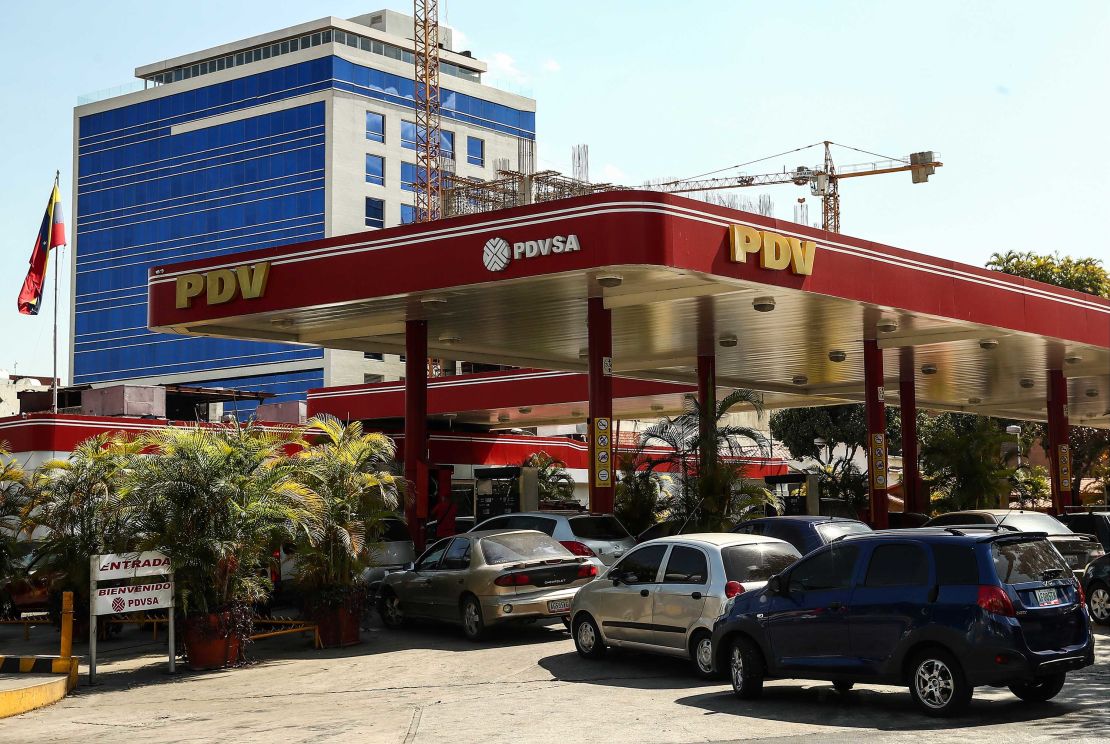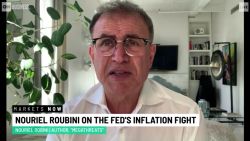US sanctions on Venezuela’s national oil company have accelerated the unprecedented collapse of its oil output and set off a domino effect in the global energy market.
The sanctions, which were announced on January 28 in a bid to speed up Nicolas Maduro’s exit, have sent US Gulf Coast refineries scrambling to find alternate sources for the heavy crude they once relied on from Venezuela.
And Venezuela, which as of last fall was the No. 4 crude importer to the United States behind only Canada, Saudi Arabia and Mexico, has been forced to find new customers and new ways to dilute its very heavy crude to ready it for export.
“Sanctions are already having a crippling effect on oil supplies,” Ryan Fitzmaurice, energy strategist at Rabobank, wrote to clients in a report last week.
Heavy crude is typically cheaper than light crude, but demand for it has become so intense that it’s suddenly trading at a premium to lighter barrels. US Gulf Coast refiners, led by Citgo, Chevron and Valero, blend heavy crude with lighter barrels found in US shale oilfields to churn out gasoline, diesel and jet fuel.
Meanwhile, Venezuela’s government, which relies on oil exports for 90% of its revenue, is searching for other customers for its crude. Venezuela’s oil minister Manuel Quevedo traveled to India last week in an apparent bid to drum up support.
“They’re scrambling to find buyers for their crude,” said Matt Smith, director of commodity research at ClipperData.
Double-whammy for Venezuela
Venezuela is in the throes of a massive humanitarian crisis. Millions of people are unable to get basic supplies, which has lead to starvation and illness.
The country’s oil industry, its main source of income, is in sharp decline. Venezuela’s oil production plummeted from 2.4 million barrels per day in 2015 to just 1.34 million at the end of 2018, according to research firm Rystad Energy.
“This freefall is poised to carry over into 2019,” Rystad analysts wrote in a recent report.
US sanctions are a double-whammy for Venezuela.
Not only was the United States Venezuela’s No. 1 customer, but it was the country’s main source of naphtha, the liquid hydrocarbon mixture used to dilute crude. Without it, Venezuela’s heavy crude can’t be readily transported. Rystad Energy forecasts that some operators in Venezuela will run out of diluent by March.
US oil prices are up almost 5% since the sanctions were announced. Brent, the global benchmark, is up 8%. But analysts don’t believe Venezuela is the main reason for the run-up in crude. Instead, they point to OPEC’s deeper-than-expected production cuts, turmoil in Libya and the bullish tone in global financial markets as recession fears fade.
“The rally has mostly been driven by the OPEC-plus cuts,” said Artyom Tchen, Venezuela expert at Rystad Energy. “Most of the Venezuelan risk had already been priced in a long time ago.”
Saudi Arabia, another major source of heavy crude, has been especially aggressive in slashing shipments to the United States. Analysts say that’s because America’s transparent and timely data make those cuts immediately clear to oil traders.
“That’s where they get the most bang for the buck,” said Smith.

‘Contingency planning’
US Gulf Coast refiners are trying to find ways to replace Venezuela’s barrels.
Earlier this month, Chevron (CVX) CEO Mike Wirth said the company activated “contingency planning” to maintain supply at its Pascagoula, Mississippi, refinery, which ran on an average of 70,000 barrels per day of crude from Venezuela.
“We are actively working to ensure we continue to supply top quality fuels and lubricants to our customers in the United States,” Chevron said in a statement to CNN Business.
Valero (VLO) has stopped bringing in crude from Venezuela altogether, and has been substituting it with oil from other North American locations. Prior to the sanctions, Valero (VLO) received one-fifth of its heavy crude from Venezuela.
“We’re certainly hopeful that we’ll see prompt resolution to the crisis, not only for the benefit of the crude markets, but for the welfare of the people of Venezuela,” Gary Simmons, senior vice president of supply and international operations, told analysts January 31.
Western oil companies that partnered with PDVA have gotten caught in the middle.
France’s Total (TOT) recently said its bank accounts were blocked. The company also evacuated its foreign workers from Venezuela, Reuters reported. Total (TOT) did not respond to a request for comment.
Chevron said that its operations in Venezuela continue and the company is “committed to the country’s energy development in compliance with all applicable laws and regulations.”
Citgo Petroleum, the Houston-based refiner owned by PDVSA, has put on hold a $685 million refurbishment to a refinery in Aruba because of the US sanctions, Reuters reported Monday.
Venezuela’s freefall to continue
The oil world is bracing for the historic collapse of Venezuela’s oil output to deepen because of the crisis and US sanctions.
“Maduro is looking unlikely to go without a fight — setting the stage for a prolonged power struggle that will likely lead to sustained production declines if history is any guide,” Fitzmaurice said. “We remain highly convicted that prices are undervalued given the current supply uncertainty,”
Rystad Energy expects Venezuela’s oil production will decline from 1.34 million barrels per day in 2018 to just 1 million barrels this year and 890,000 barrels in 2020. If Venezuela is unable to offset the impact of US sanctions and secure new financing, production there could slide to 680,000 barrels per day in 2020, Rystad said.
It’s a stunning decline given that Venezuela has more proven oil reserves than any other nation on the planet.






















